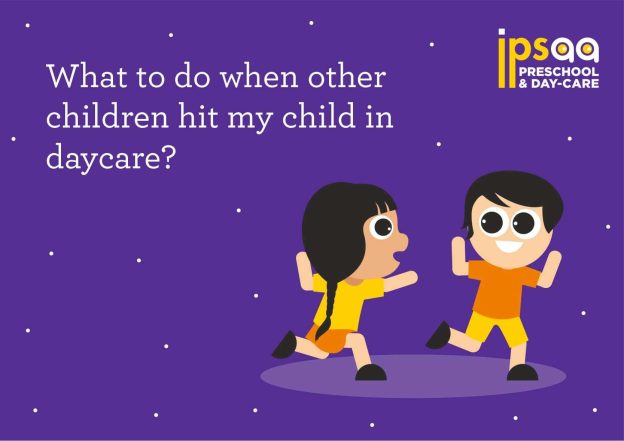Well, we’ve all been there, enjoying an eventful family time playing games together, and suddenly the peace is cut short when one child hits the other and cries, shrieks, and whines come pouring out.
It is quite common during playtime, especially among kids, that they tend to hit each other. Often, it can become stressful for the parents to figure out the best way to handle their behavior. Besides, it is more awkward for parents when their child starts hitting others in daycare and they worry about how to solve the problem.
Do not doubt you are alone in this, and you do not have to worry about it. Lots of parents face this issue at their homes or daycare. In this blog, we have highlighted the reasons why toddlers tend to hit their peers and how you can alter their mindset towards it.
Why do Toddlers Hit their Peers?
Children can become very aggressive sometimes, which is normal for their emotional development. It is quite common in children of ages 3 to 6 as they are developing various behaviors, such as the instinct to bite, kick, hit and yell when feeling emotionally overwhelmed. It is because, at that age, they cannot control their emotions, so hitting, cutting, etc., are some ways they go with. The following are some of the reasons why toddlers hit their peers-
No Self-Control over their Emotions
When dealing with toddlers, know that their impulse controls are not yet developed. They have mixed feelings, sometimes, they feel happy, sad, frustrated, or bored, but they cannot express their emotions. According to research, the hitting of children between the ages of 3 and 9 shows positive growth as they can learn and develop their minds/emotions.
Not Able to Understand that it is Bad
Sometimes, toddlers use force to do things without being provoked, which supports the idea that they want to learn and see what happens. They do not possess the moral compass or understanding that it is not right to hurt others, but they do because they are unaware that it is wrong. Besides, scientists have studied that 11 to 24 months old toddlers were not found to be distressed at times while hitting others.
Not Knowing how to Process their Feelings
Another reason toddlers tend to hit themselves and others is their way of handling big emotions. They are frustrated, but unlike adults who can calmly explain their feelings, toddlers do not possess the capacity or self-control to stop, react, and feel that they are socially appropriate, acceptable, and helpful.
What to do when Toddler hits?
Luckily, hitting is just a phase that can be dealt with as a parent and concreting the paths of your children. Daycare is one of the best ways to redirect your child’s steps. If your child already goes to play school, you and your teachers can help them figure out their emotions and how to handle them. Also, you can follow the below ways to benefit your children.
Take your Child away from the Situation
We’ve all heard, “if you hit again, I’m taking you to the car,” Will it be effective? Yes, but for some. Simply removing your child from the situation is the best way to solve the problem. It might not be effective at one go, but doing so more than once can make your child realize that their actions will have consequences, such as not being able to play with others if they act.
Additionally, it depends on where you take your child. For instance, if your child is showing tantrums at another person’s house, you can take them to your car to calm them down. And if you are at your house, choose a calm and quiet location to help them refocus.
Restraining them Physically
When your child hits others, your first instinct might be to physically hold them back. If they are out of control and you feel that physically securing them can calm them down, it might be a good option. Physically restraining your child shouldn’t have to be painful in any way, but do that calmly and give a firm hug that can prevent them from hitting themselves or others. Moreover, you can speak to them calmly and let them know that you’re holding them because what they’re doing is wrong.
Providing Emotional Support
When your child hits someone, it may be because they cannot manage emotions. You can try teaching more options for emotional expressions, such as what various feeling words mean and how to use them. Explaining frustration to a 5-year-old may be difficult and different than to a 2-year-old. Using and learning dialogue to express while being mad, stressed, frustrated, and other emotions can prove useful.
Prevent Hitting
Observing your child’s behavior leading up to hitting and preventing it before hitting can be helpful. You can do so by learning about the triggers that cause them to hurt others and themselves. For example, some children make frustrated noises, almost like a dog growling, while others can whine about the problem. When your child starts acting like this, you can run towards them and calm them before hitting becomes an issue. You’re more likely to stop and talk them through options by identifying the triggers.
Final Thoughts
As parents, it is important to understand that children hitting others or themselves is natural and a life phase. Approaching your child’s behaviour and planning to manage their emotions through support from daycare or preschool teachers can set a course of action. If you’re looking for a reliable and supportive daycare near Gurgaon, ipsaa is your solution. Contact us today to know more.


